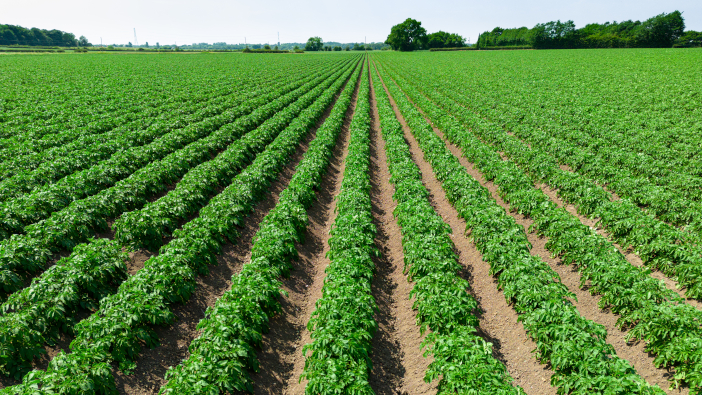Tesco is partnering with five of its largest field vegetable suppliers to launch the UK’s biggest-ever commercial roll-out of low-carbon fertiliser, which the company states will contribute to boosting food security, while also reducing greenhouse gas emissions in the supply chain.
Tesco reports that it is expected to reduce emissions by up to 20% in the first year alone, at no extra cost to farmers. This prediction includes the emissions associated with fertiliser production, as well as reduced use requirements due to improved efficiency in the field.
The farms taking part in the roll-out are:
- Branston – potato supplier based in Branston (Lincolnshire)
- G’s – salad vegetable supplier based in Ely (Cambridgeshire)
- Stourgarden – onion supplier based near Colchester (Essex / Suffolk border)
- Huntapac – carrot supplier based in Holmes (Lancashire) with sites across the UK, including fertiliser trials near Grimsby (Humberside/Lincolnshire/ South Yorkshire).
- TH Clements – sprout (brassicas) supplier based in Boston (Lincolnshire)
Eight fertiliser alternatives will be used across 1,300 hectares in the 2023 growing season, with plans to scale up to 4,000 hectares in 2024. Six of the eight fertiliser producers will be manufacturing in the UK from material including food waste, chicken litter, fire extinguisher waste and algae.
The fertilisers being used in the trial are:
- Bio- F Solutions – using algae-based process
- CCm – using food waste / AD digestate
- JSE Systems – using chicken litter
- Phos Cycle – using fire extinguisher waste
- Poly 4 – using mined material
- R-Leaf – using chemical composite
- Veolia – using food waste / AD digestate
- Yara crop nutrition – through use of renewables
The production of low-carbon fertilisers in the UK will create jobs and could help to reduce the reliance on chemical fertilisers. The UK currently imports around 60%, with UK production being hit by the closure of several plants – it’s estimated that the closure of CF Fertilisers’ plant in Cheshire will represent a 30% reduction in the UK’s fertiliser capacity.
Tesco plans to introduce the alternatives to other produce areas, including wheat and barley, where emissions linked to chemical fertilisers account for more than 60%, as well as grassland for beef, dairy and lamb supply chains. The first year is set to produce up to 70,000 tonnes of fresh produce, increasing to 200,000 tonnes in 2024.
Sarah Bradbury, group quality director at Tesco, said: “Delivering more affordable, sustainable food means finding innovative, new ways to grow basket staples like potatoes, salad vegetables and carrots. Fertilisers are a large source of emissions in farming, but high prices and uncertainty have made it hard for farmers to take advantage of low-carbon alternatives.
“We hope that by working with our suppliers, our learnings from this roll-out of low-carbon fertilisers can prove their potential to cut emissions and demonstrate what it would take to scale up production in the UK. It’s vital we keep costs manageable for farmers facing the most challenging market conditions in a generation and help our customers to eat in a way that’s good for the planet and pocket.”
Stephen Shields, technical director at Huntapac said: “It’s great to be part of the Tesco field veg trial as we focus on moving away from artificial inputs to something that’s better for the environment. By moving to these new low carbon technologies, we can save money compared to chemical-based fertiliser and at a time when all costs are going up for farmers, any steps that reduce them are ideal.”



